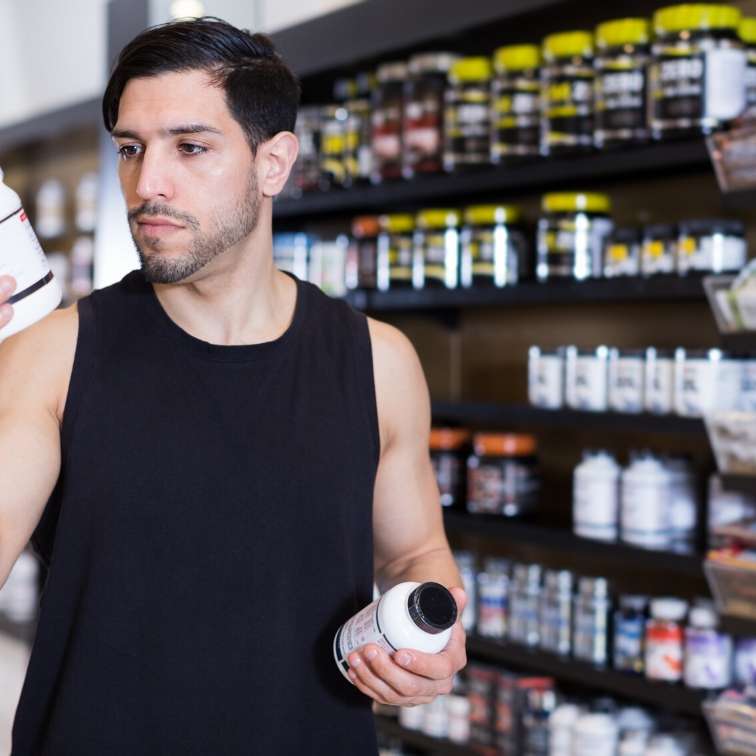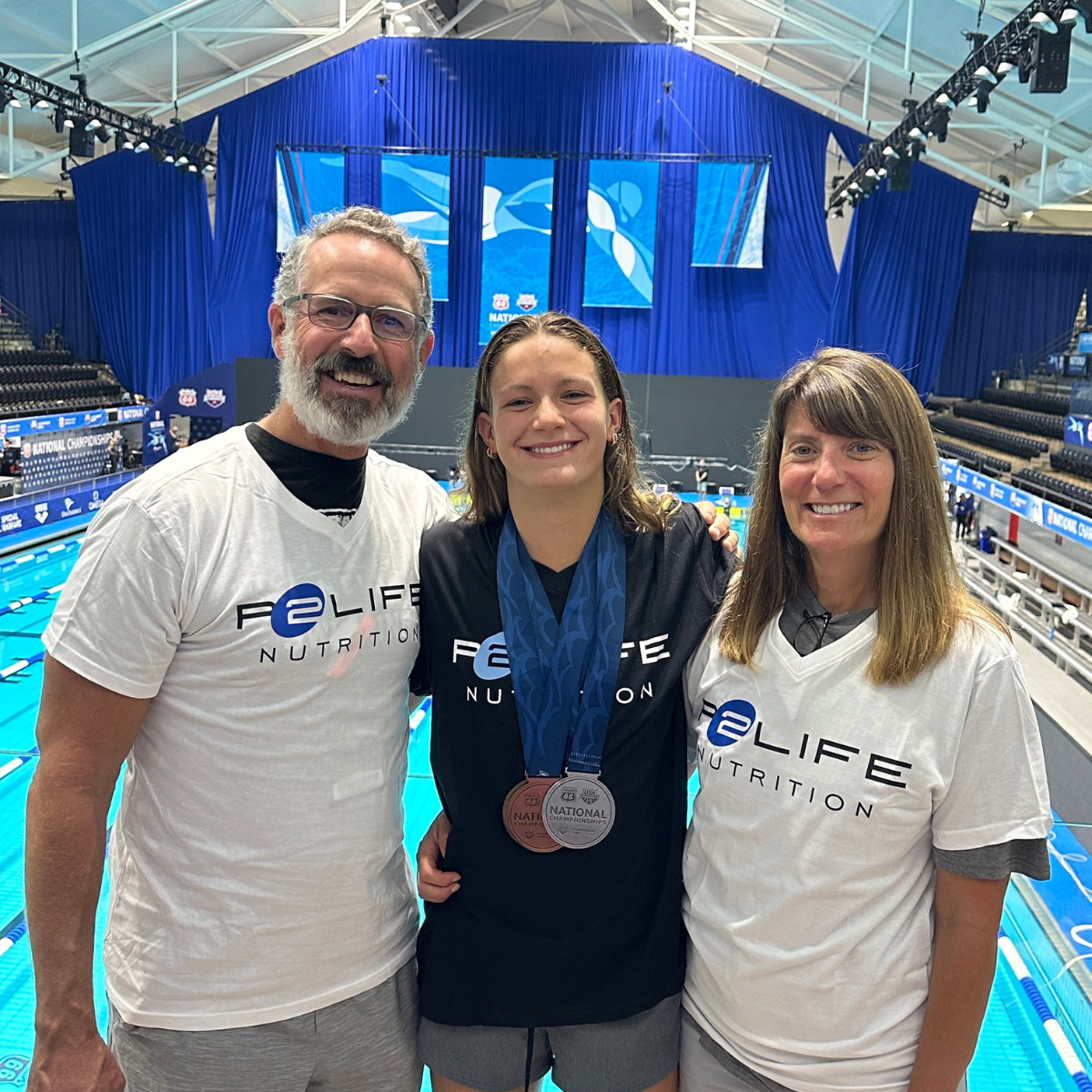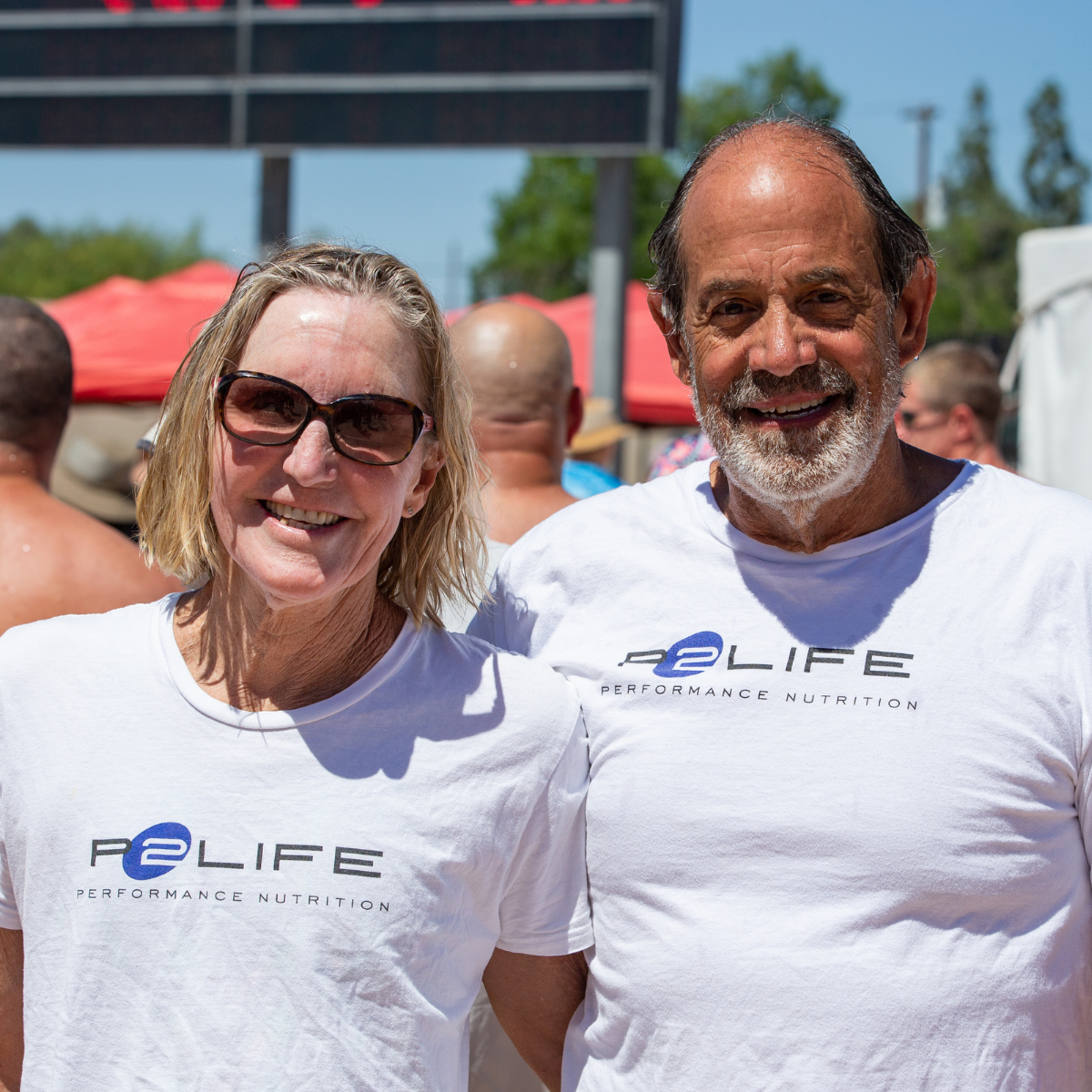
Tested Safe: What to Know About Banned Substances
Today we’re talking to Oliver Catlin, President of BSCG (Banned Substances Control Group), www.bscg.org, and (ADSI) Anti-Doping Sciences Institute, which are located in Los Angeles, California. BSCG’s Certified Drug Free® program is the highly regarded third-party dietary supplement certification P2Life uses to ensure our products, are free of performance-enhancing drugs or other harmful agents. We explore how BSCG got started, how the anti-doping industry has evolved, and some ingredients and products to watch out for in your supplements.

Oliver, thank you for talking with us today. Tell me how BSCG got started.
Our foundation is based on a long history of sports drug testing and related supplement issues. My father, Don H. Catlin, M.D., founded the UCLA Olympic lab in 1982, back when the world of “anti-doping” was just getting started. By the time I got started in this industry 12 years ago, designer steroids and other new drugs, many of which were developed in the supplement industry, had become a primary challenge.
We started to deal with a number of athletes who tested positive because they had taken supplements contaminated with drugs. We were happy to help athletes like Kicker Vencill and Jessica Hardy, by providing analytical testing support to demonstrate that drugs were indeed hidden in their supplements, but it was always after the fact. They had already tested positive and suffered serious consequences for the results. We wanted to stop being reactive and become proactive to help stop athletes from unwittingly consuming drugs that could be present in a supplement.
So we started the business in 2004 as a way to give reputable supplement manufacturers and ingredient suppliers an effective way to indicate that they had addressed banned substance concerns. Associating our testing with a trusted seal also gives companies a way to proudly distinguish themselves from others. Perhaps most importantly the protection our testing affords to brands and products that we certify, like P2Life, allows the athletes and consumers to use them with the utmost security.
We’re pleased to have helped to found the industry of supplement certification as it relates to drugs banned in sports with the creation of BSCG in 2004. All along, we really wanted to make sure we were focusing on helping dietary supplement companies improve the quality of their products and allow our seal to be a means of discriminating between those deserving of notice. And we’ve been doing it ever since; we now have over 50 clients with our client list continually growing, and we’re proud to continue doing everything we can to help clean up the supplement industry and protect athletes and consumers.
Tell me a little bit about how BSCG helps protect athletes and consumers from those issues?
From the beginning, we have been focused on athlete protection and performance-enhancing drugs and those continue to be the foundation of the testing we provide in our BSCG Certified Drug Free program. Today we include testing for more 272 drugs prohibited in sport, more than any other supplement certification program available.
But we are also trying to push the envelope of the industry forward by expanding our focus into drugs that have proven to be a concern as contaminants in supplements but are not banned in sport. We have chosen to deal with these prescription, over-the-counter (OTC) and illicit drugs and how they contribute to the problem.
The FDA conducts its own testing for drugs in dietary supplements. However, if you evaluate the results of their testing, you find that the majority of the drugs they find, such as PDE-5 inhibitors, painkillers, muscle relaxers, are not banned in sport. If you look at the statistics about 25% of the drugs they find are banned in sport, a scary statistic for athletes to consider, but we should all be concerned about the rest of the 75%. Often in their notices on contaminated supplements, the FDA includes a statement saying that they cannot test all dietary supplements on the market that have potentially harmful hidden drugs. We thought athletes and general consumers needed protection in this arena.
So we responded by adding more than 200 prescription and over-the-counter drugs not banned in sport to our standard testing menu. We are proud to be the only third-party supplement certification provider that includes this additional protection which we feel is relevant well beyond the realm of sport and sports nutrition.
We are also excited to be adding two new programs and seals. The first is our Certified Quality program focused on verification of label contents and environmental contaminants like pesticides, heavy metals, or microbiological agents. The second is Certified GMP, which is our onsite manufacturing facility auditing program focused on good manufacturing practices. We’re pushing the industry forward and working to build out the array of our services and are happy to do our part to support quality in the supplement industry.

So you and your father have been around anti-doping and the supplement industry for over three decades. What changes have you noticed? You mentioned that these issues go beyond sports, and I agree that as consumers begin to use preventative healthcare, supplement purchasing increases. What trends do you see in the supplement industry?
There’s a growing popularity of certain products and categories that relate to the sports-testing industry and also present a potential toxicology concern for consumers. We are cognizant of the continuing challenges that the “pre-workout and energy” product market continue to represent. That market is rampant with designer compounds, mostly stimulants, that are often disguised as plant extracts or using names that are not immediately recognizable as a concern.
These ‘ingredients’ can end up being powerful stimulants, or close cousins to methamphetamine as was the case in the CRAZE pre-workout product from a few years back, without a consumer or athlete knowing. We’ve seen abuse of the ingredient regulations, with the inclusion of some of these concerning ingredients, to be a significant and growing challenge for the sport and consumer marketplace.
This is an area that draws our attention and focus. Since many designer stimulants either aren’t labeled or aren’t recognized by the public on labeling and product descriptions. In other areas we’re seeing entire categories of nutrition products that are completely thwarting FDA regulations in other ways with the overt presence of performance-enhancing drugs.
What are some ingredients or products consumers and athletes should be concerned about?
One example is the group  of performance-enhancing drugs known as “selective androgen receptive modulators,” or SARMs. There has been an explosion of these drugs in the form of supplement products within the nutritional industry; many companies sell them unfortunately. In this case, the drugs are actually listed as ingredients, despite the reality that they are indeed unapproved drugs and not legal to include as an ingredient. This is clearly an FDA violation that is out in the open. The products are attractive to athletes, who don’t always know they’re consuming SARMs as they are often put on the label with names that cannot be associated with a banned substance list, like LGD-4033 or Cardarine.
of performance-enhancing drugs known as “selective androgen receptive modulators,” or SARMs. There has been an explosion of these drugs in the form of supplement products within the nutritional industry; many companies sell them unfortunately. In this case, the drugs are actually listed as ingredients, despite the reality that they are indeed unapproved drugs and not legal to include as an ingredient. This is clearly an FDA violation that is out in the open. The products are attractive to athletes, who don’t always know they’re consuming SARMs as they are often put on the label with names that cannot be associated with a banned substance list, like LGD-4033 or Cardarine.
SARMs are designed to work in much the same way as steroids do. They aim to activate the androgen receptor in the body. This is the same thing a steroid does. Whether SARMs work is another story, as none have been approved as a drug as of yet. When compared to steroids, SARMs do not bring the same problems of toxicity. This is one reason they’re not being regulated as well as they should be as the FDA regulatory approach focuses on addressing adverse events for the most part.
Unfortunately, this leaves SARMs supplements less likely to be involved in regulatory action despite the fact they are clearly illegal. I have seen the FDA go after the sale of SARMs in only one or two situations, and that was only when they found that the company also had products tainted with PDE-5 inhibitors or other drugs. SARMs remain largely under the radar when it comes to regulatory action.
Other supplement products to watch out for are hormones, hormone replacement products, and sexual stimulants. There’s a lot of ‘research peptides’ being sold on the market, and these are often growth factors that could lead an athlete to test positive. These research peptides are in reality unapproved drugs for the most part. It is legal to sell research peptides, so that analytical or animal studies can be conducted, however they cannot be sold for human consumption.
There are always new agents or categories of concern that arise within the supplement industry and we do our best to help combat those while also supporting the good side of the supplement industry through our certification programs.
There’s so much to watch out for! What advice do you have for our readers?
We advise caution. For both athletes and consumers we say be careful about what you consume, do your research, and buy products that are backed by science and certified by a quality third-party company like BSCG. Some people think that GMP provides protection against drug contamination but the reality is that GMP does not have any provisions that address the risk of drug contamination in supplements, rather it is designed to ensure consistency in the quality of a product.
Taking certified products from P2Life is the best way an athlete or consumer can have confidence that the product they are consuming is free of drugs and won’t lead to problems down the road. It takes the guesswork out of it for the athlete and consumer. Then they can focus on what’s important without worrying about the potential risks of drug contamination and the harm to health or a career that might result.
One of our main goals is education. With education comes safe supplementation. We are a major proponent of proper training, nutrition, and dedication and believe those are the keys to athletic success. BSCG helps sponsor and support our non-profit charity partner, Support Clean Sport, as a grassroots approach to spreading those ideals through sport.
Education is key. Thank you again, Oliver and here's to safety in all sports and supplementation.










Leave a comment
This site is protected by hCaptcha and the hCaptcha Privacy Policy and Terms of Service apply.